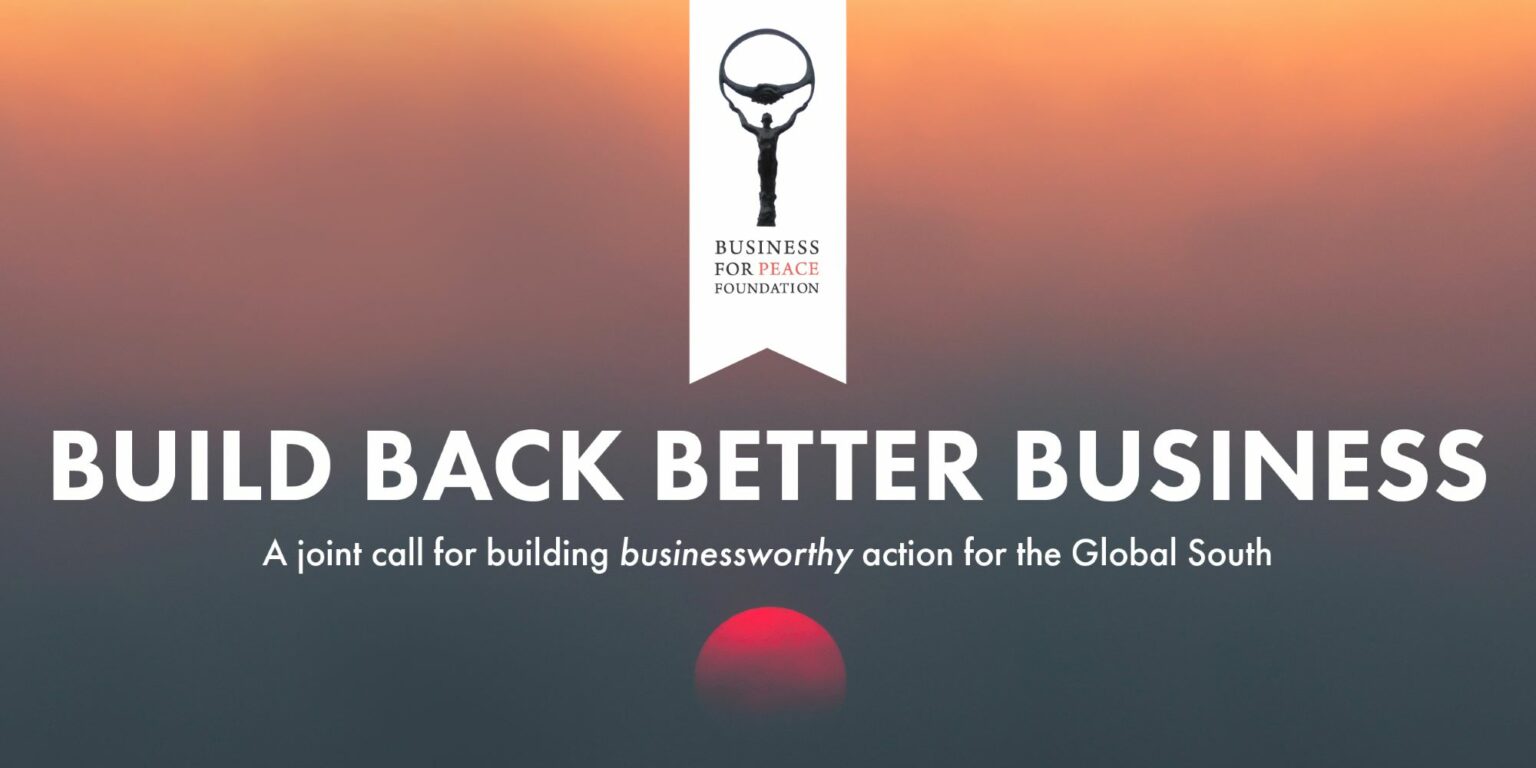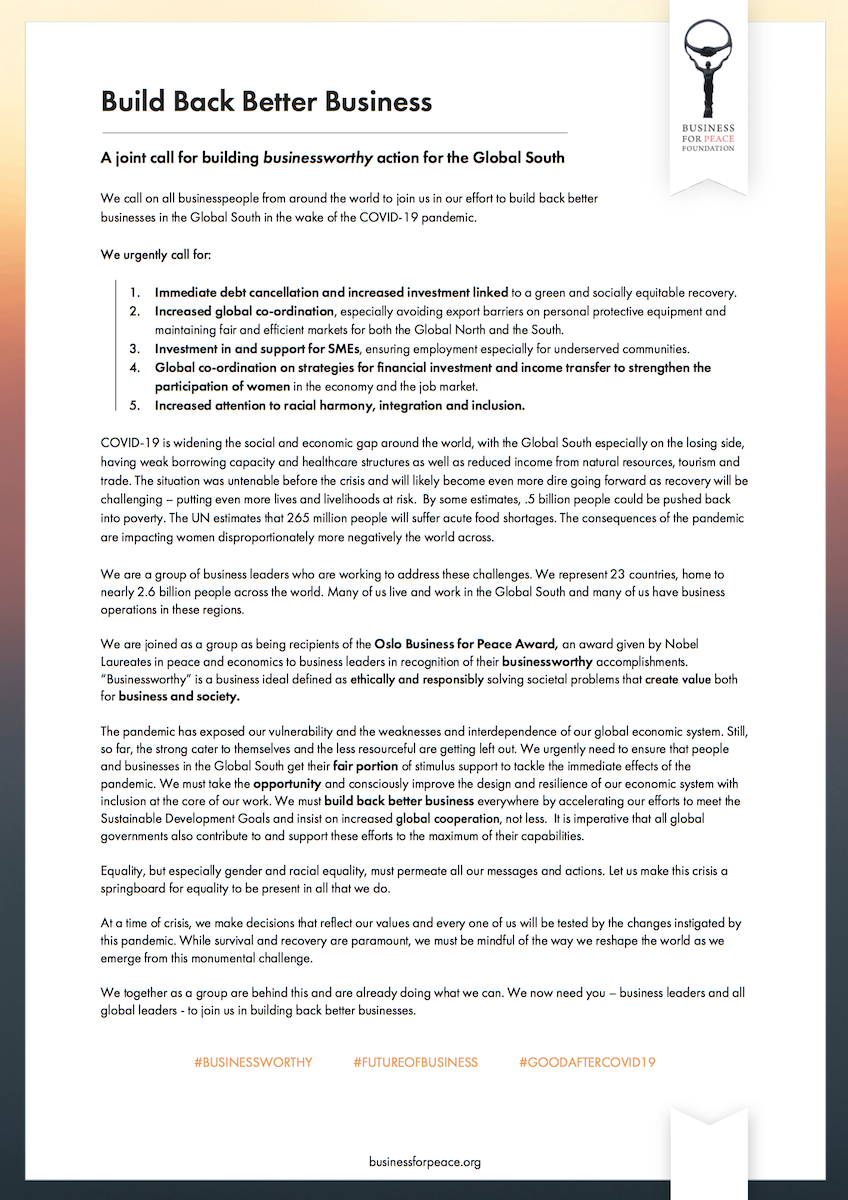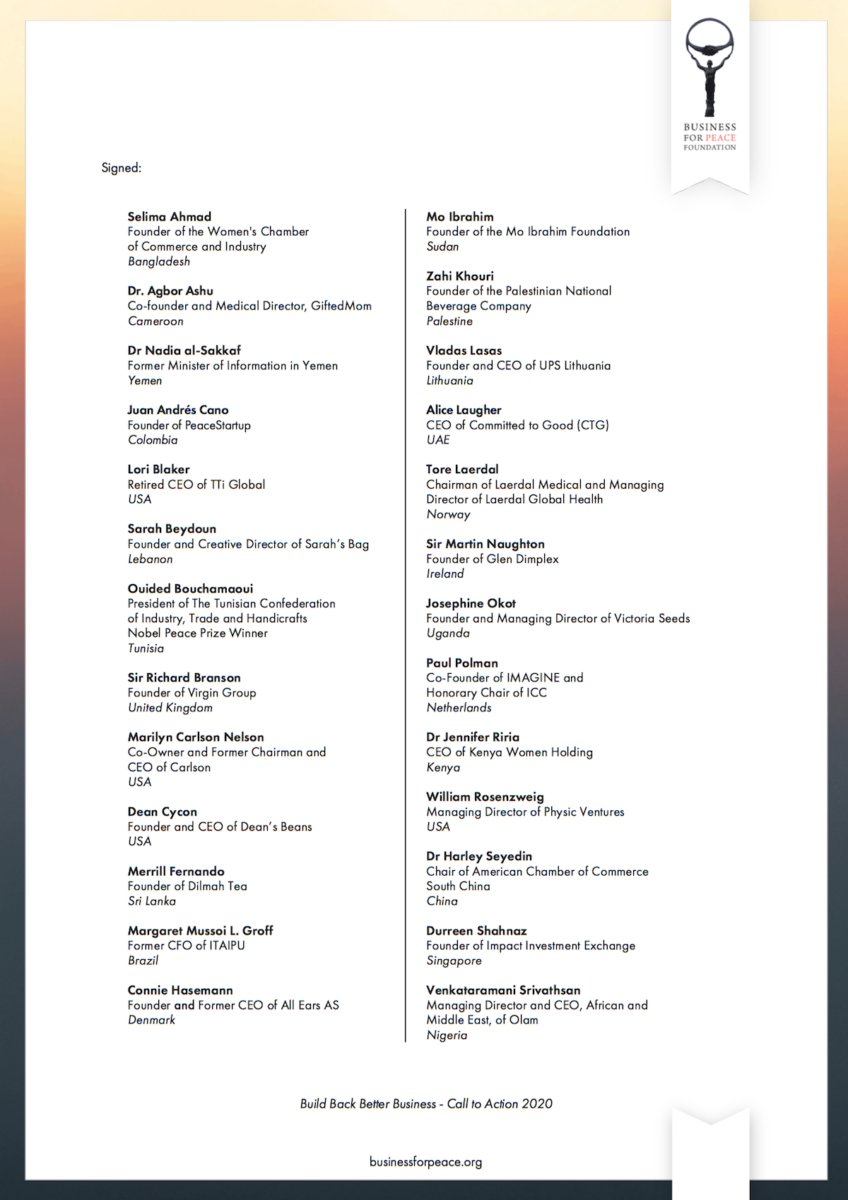Category: Initiatives and Events
#Future of Talks: The Future of Travel
Travel must be part of the solution
Thursday, 05 March 2020 11:19
Humans are explorers. Travel allows us to see the world in a different way and experience new things together.

After the Business for Peace #FutureOf Travel event, attendees were left thinking about the convenience of travel compared to its environmental impact and how this may influence our decisions as consumers. Our pull to explore our world and learn more doesn’t have to be compromised, but various players in the industry need to do their part, too. How do companies incentivise sharing our personal car, for example, in order to reduce the number of cars on the road?
We hosted this event to talk with industry professionals about what they are doing to combat the potential negative effects of travel. Therefore, our panel consisted of experts from a broad range of industries within the travel sector. It included Anders Fagernæs from Norwegian airline, Astrid Bergmål from Virke tourism association, and Ane Furu from Møller Mobility Group. Our moderator was author and founder of 12YEARS, Petter Gulli.
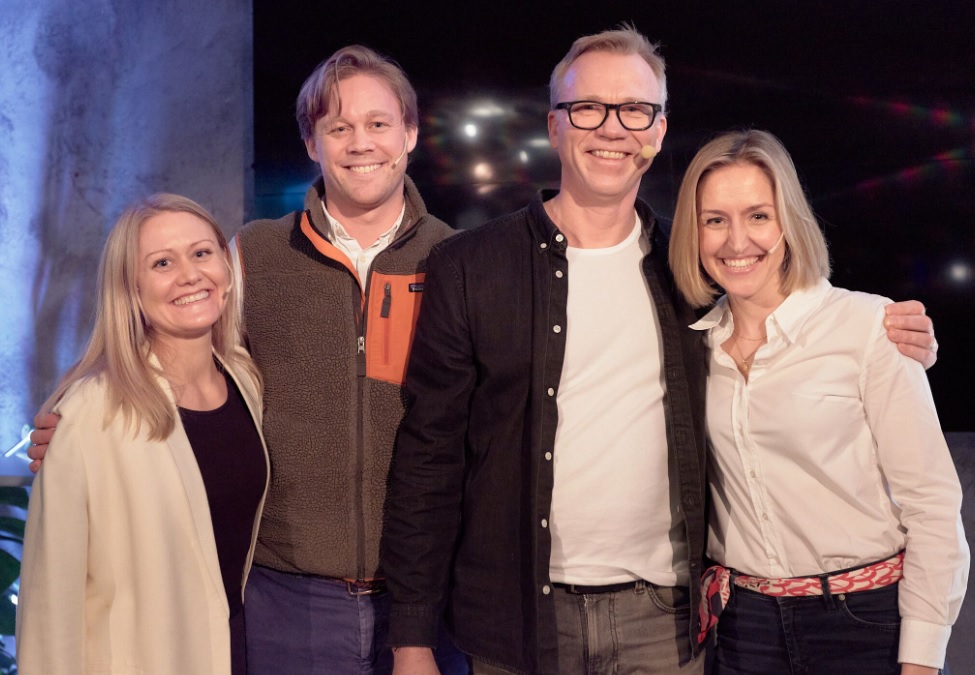
The conversation started with an acknowledgement that effective and open cooperation within the industry needs to happen immediately. There must be a balance between environmental arguments and societal value. Fagernæs explained how “sustainability is a divisive topic. If we have to set goals together, I need to trust the person next to me, so it is important that we understand each other. I think we shouldn’t focus on travel as being bad. We need to look at the solutions.”
Our desire to explore the world certainly isn’t something to be ashamed of. As Bergmål put it: “People will always want to meet. We are explorers. Travel must be a part of the solution when it comes to [the Sustainable Development Goals]. We want to know other cultures, understand more, get to know people. It is the glue for many families.”
“It is easy to make excuses,” Bergmål says. “The footprint has to go down, and the emission has to be zero. By not travelling, we are taking away focus from the real solution.” Fagernæs argues that we are not flying more domestically, but tens of thousands of jobs in Norway alone require travel in their work. “Think about businesses and their livelihood. It is important to understand the impact and that we have to live with some environmental cost to make it work.” One-day business travel continues to increase. However, the more convenient something is, the less likely consumers are to seek out alternatives.
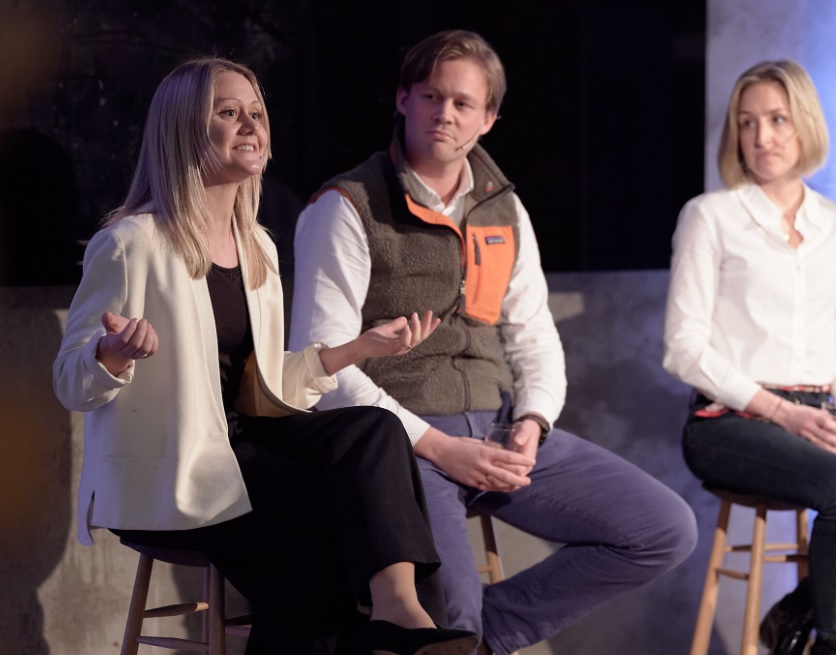
Yet there continues to be a high number of flights made available. If flights continue to be high-carbon contributors, then the solution needs to be sought elsewhere. Being flexible with shared solutions and relying on startups will bring new services that are tailored to people’s needs. Fagernæs admits that although aviation is only 2% of global emissions “we need to fly smarter, make use of the newest technology.” Would people choose trains more if trains were faster? Bergmål thinks so: “Politicians should work more on getting more train routes, domestic and international. Trains don’t go that often and it takes too long.” Stockholm-Oslo is today a six-hour journey, but plans are in the works for making this a mere four-hour connection. Securing a train route from Oslo to Copenhagen, for example, would make train travel to the rest of Europe even quicker.
Furu mentioned that in her own personal convenience scenario, she used to happily drive to work via car from her home in Grunerløkka, near Oslo’s city centre. However, once the local government made this everyday commute of hers into an inconvenience, she promptly looked for alternative solutions and started using public transit as an alternative travel solution.
Furu further points out that “More than 80% of the population is living in rural areas. We need to travel for our daily lives.” We therefore need to make sure that there are better ways to provide transport for people living in rural areas. Furu reiterates that it is important to think strategically about how to share assets and to utilise a fleet in an efficient way. This beneifts both business and consumer. “Remove friction from car sharing to make it more convenient. Norwegians don’t want to sit together when they travel, but we can reduce the boundaries for sharing assets.We need regulators to dedicate parking space.”

Consumers have a responsibility as well. This responsibility mostly lies in pushing companies and legislators to solve the problem–and trusting them to follow through. “As a person I have my wallet and have my vote. As a consumer I can choose the smartest way to travel,” Fagernæs said.
Bergmål wants consumers to make businesses “Can we skype more? Should I take the train instead? I can organise my life to have more meetings in one destination?” Businesses need to think in terms of the everyday. This also lessens the pressure on the individual consumer, “rather than taking away someone’s holiday.”
The audience was interested in a breadth of recurring issues, more ideas, and solutions. Electric planes and city transit, for example. One question about batteries for electric vehicles, for example, asked whether the pollution from creating those batteries was justifiable. This is just the beginning of this discussion. The intriguing Q&A session, plus the panel talk in its entirety, can be found here:
People will and should continue to travel in the future. However, this travel needs to be smarter and more sustainable. We achieve this by utilising new as well as existing innovative solutions. These solutions ensure the future of our planet.
This entry was posted on Thursday, March 5th, 2020 at 11:19. You can follow any responses to this entry through the RSS 2.0 feed. Both comments and pings are currently closed.
Cancelled Event: #The Future of Oil
Thursday, 05 March 2020 11:19
Dear friends,
We have made the difficult decision to cancel the “Future of Oil” event scheduled for 24 March in light of precautions due to the COVID-19/Coronavirus. We feel a deep sense of responsibility to our community and therefore believe that cancelling this event now is the responsible thing to do.
The plan is to re-convene this same panel at a future date once the COVID-19 situation changes. Follow our Facebook page to be notified when the new date is scheduled. We appreciate that so many of you are interested in this conversation and look forward to hosting this event at a later date.

#Future of Talks: The Future of the Ocean
Can we achieve ocean sustainability in 10 years? Experts hope so.
Thursday, 04 February 2020 10:51
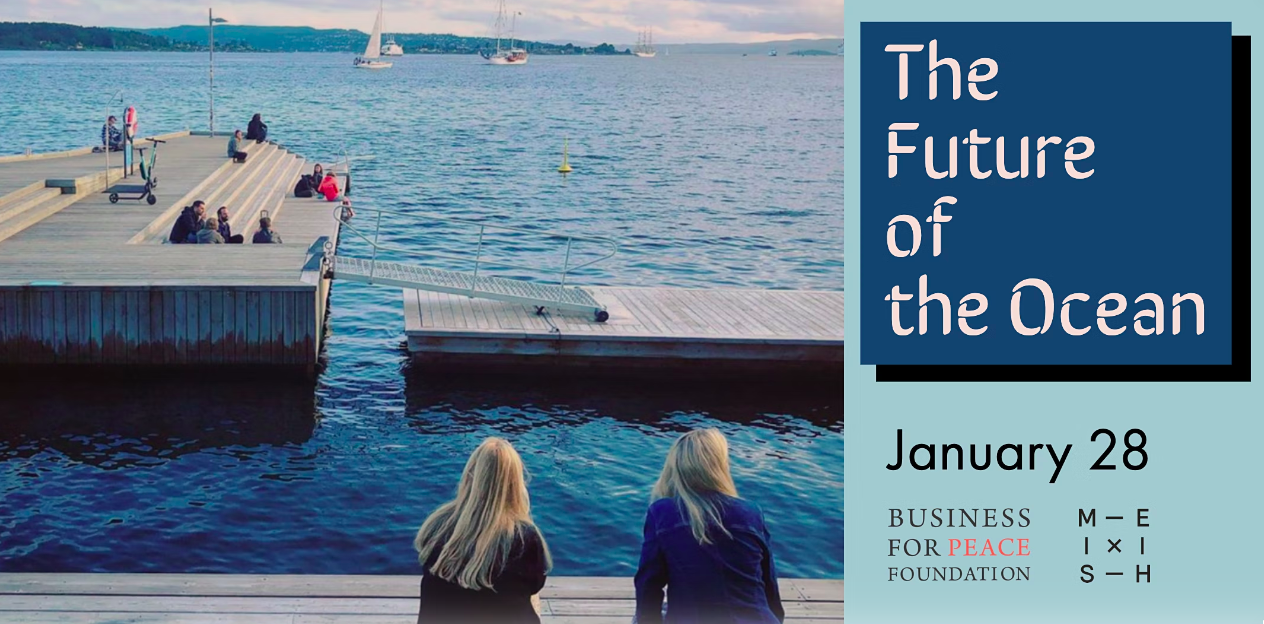
The message from experts is clear: we need to act fast to reverse the damage done to our oceans. We’ve lost 40% of life in the ocean in the last 40 years and the situation is escalating. Biodiversity loss, pollution, urban waste water, overfishing, and climate change, are all part of the problem. But there is hope.
Business for Peace convened leading ocean experts in Norway to determine the state of the industry. High on the list of talking points was what action the private sector in particular is doing to protect nature’s most important system. Panelists Vidar Helgesen, Christine Spiten, and Nina Jensen are all heavily involved in pushing the industry forward.
As the blue economy booms, businesses need to collaborate on minimising their ocean impact and addressing climate change. Whatever action that is taken needs to be aggressive and collective. We are all aware that time is not on our side. Who has responsibility for this implementation, though, and how we get there, is increasingly being acknowledged and pushed forward by the private sector.
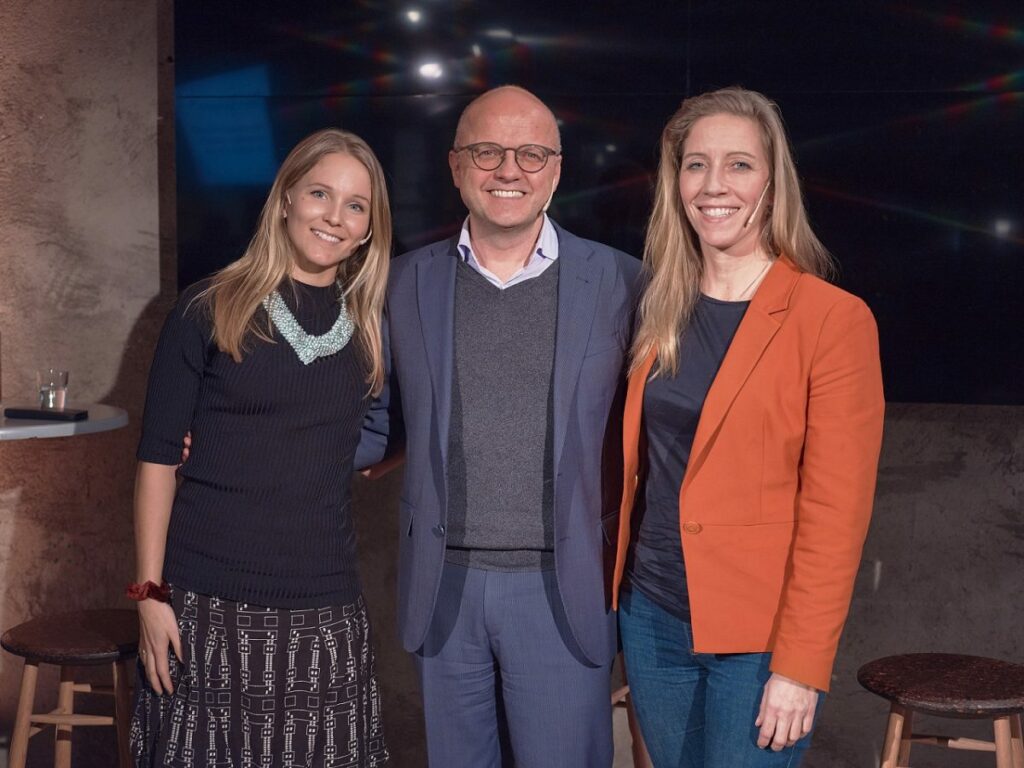
Bring in the experts
The panellists acknowledged the interplay of problems. Norway’s Special Representative for the Ocean, Vidar Helgesen, sees incentives for innovation as part of the solution: “Part of the fundamental problem is that plastic is too cheap. This is an innovation problem. In Europe there are a lot of exciting new initiatives coming out.” Where you live also determines who should be held responsible, and goes on to claim that “if you are in the US, I would look to business rather than the government.”
Christine Spiten, Senior Corporate Advisor for Plastic & Circular Economy at WWF Norway, acknowledges that there are risks involved when trying to make innovation profitable, but advocating for teamwork: “Here in Norway we are afraid of testing something out that is not perfect because we are afraid of losing face. We need to be bold and come up with those crazy ideas and support them.” This teamwork and openness is crucial in having any hope of recovering the status of the oceans, as “very few people know how to manage the ocean and most of them do not do that in a sustainable way.”
Our final panelist, CEO of Rev Ocean and marine biologist Nina Jensen, also sees that the most potential lies “in business. Where there are large problems there are also huge business opportunities.” Of course, this is easier said than done. It is extremely difficult to persuade those in power on ideas. “Part of the solution,” she suggests, “is to scale up infrastructure. Those producing the plastic have plenty of money and they should be held accountable. They should be solving the problems that they have created.”
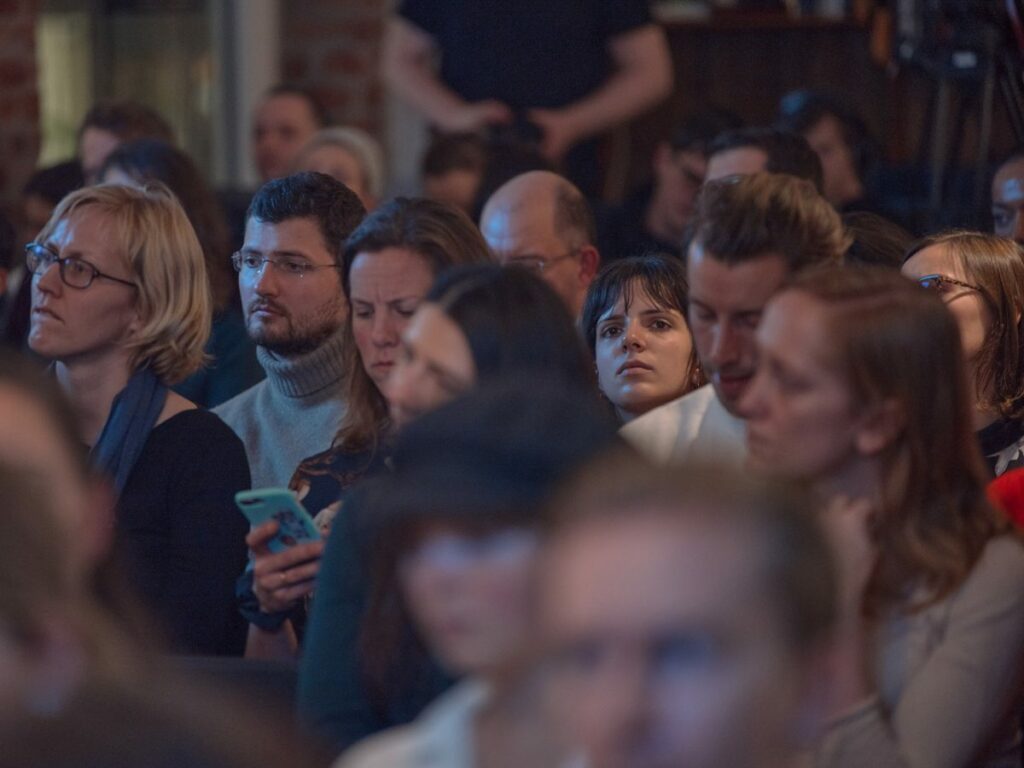
Making waves
The ocean protects us in ways we can barely fathom. It absorbs about 30% of carbon dioxide produced by humans. To put that into perspective, the ocean covers 99% of the total living space on Earth by volume. It’s a lot to take in for the average land-dweller.
“There has been a free-for-all approach to managing the ocean,” said Heglesen. Jensen added: “I’m an optimist and believe that technology can help us with a lot of things, but it’s also a way of keeping us from doing the right things. We simply cannot open any new oil fields. It is keeping us from making the right choices.”
When making the right choices, then, it is “equally important to make sure what happens is not just creating another problem. Technology is not going to solve anything unless you put it in the hands of good people,” as Spiten pointed out.
So what is the future of the ocean?
“I do think that we’re on the cusp of some really important and critical discussions,” Helgesen said. “More has happened in banking and investment in the past few months than has happened in the past few years. Today we know better. We are in a transformation. The oil issue is a transformational question. We need to get away from fossil fuels. Divestment from oil is really catching on.” Governments need to provide that holistic planning framework for such activities to take place. Industry working in ocean solutions can achieve ⅕ of what we need in order to achieve our targets. A lot of this requires regulations put in place by governments in combination with technological innovation.
Keeping businesses accountable is a key piece to the puzzle for Jensen. “There are a lot of great initiatives out there that could benefit from funding. Part of the solution is to scale up waste management in the countries that are missing this.” According to her, funding should come from those who produce the plastic. It’s the responsibility of governments to put regulations in place, to use the data that we have to our disposal.
Spiten pointed out that there is a need for more cross collaboration. Research is being done without the connection to business, and this lack of shared ideas and research is hurting progress. “Let’s put more scientists into startups,” she says. It is through this collaboration where we meet around the challenges.
The solutions don’t have to be complex in order to be effective. The start-up ARC Marine has transformed, for instance, a simple brick block. The brick is used on off-shore wind turbine field construction, where the bricks have simultaneous purpose: doing its job while at the same time creating artificial reefs for threatened animals. In this way, Spiten says, what nature needs is “often what we need as well.”

Sea of Possibilities
The panellists left us with feelings of hope – hope that concrete technologies and solutions will be put to use in the hands of those who really can make a difference already in 2020. This includes individual efforts as well. Does it really matter if we eat less meat and recycle? If we ask the panelists, of course it does. “We might not all be Greta Thunberg but we can all make an impact,” says Jensen. We can all act like Greta in whatever way that we can. It’s the little things that everyone does that add up. “All of a sudden, you can have a huge impact.”
From the air we breathe to the water we drink, sustaining life on our blue planet depends on the oceans. We are living in a historic time, and it’s time we have discussions and actions that make an impact.
This entry was posted on Tuesday, February 4th, 2020 at 10:51. You can follow any responses to this entry through the RSS 2.0 feed. Both comments and pings are currently closed.
#Future of Talks: The Future of Food
Tuesday, 05 November 2019
Everybody’s talking about food. It nourishes us, brings people together, and makes us happy. But we can’t keep producing and eating the way we are now.
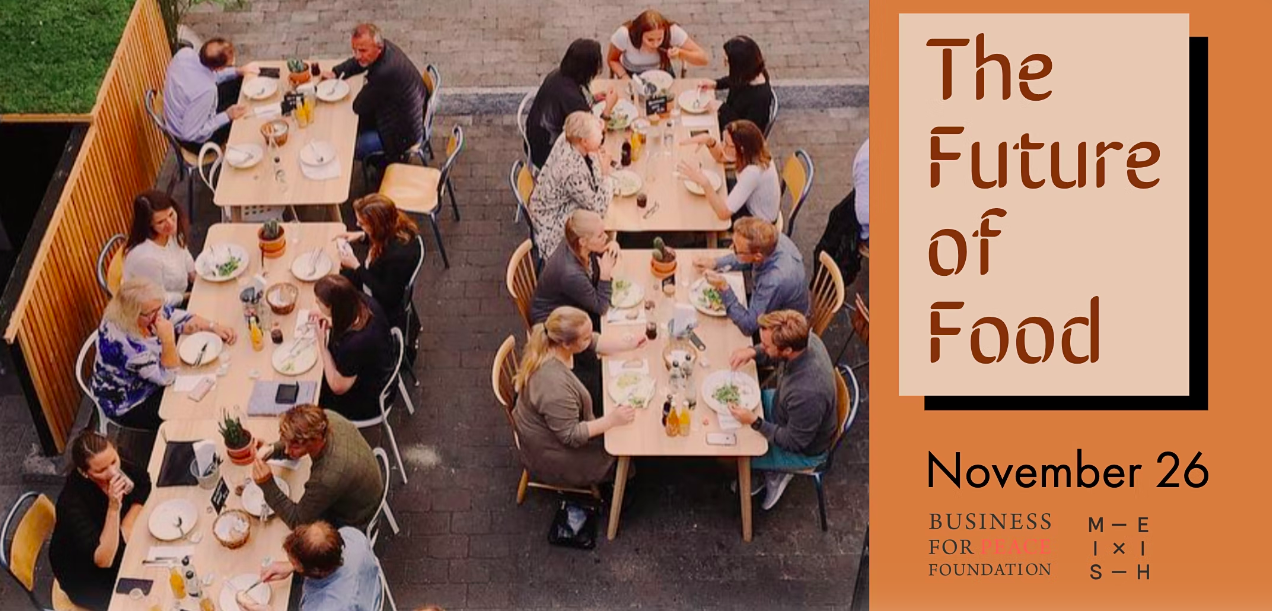
Today’s global food systems threaten the health of our planet and can’t sustainably continue. With links to biodiversity loss, high greenhouse gas emissions, and rising obesity in some areas with food scarcity in others, the production, distribution and consumption of food is negatively impacting people at every level of the supply chain. New solutions are needed but can we really produce food for 7.5 billions people in a way that is healthy both for us and the planet? How are businesses at different levels of the food landscape contributing to a better system?
Come hear our panel of business and civil society experts delve deep into the gaps in the food system- from production to distribution to consumption and waste. We’ll be joined by:
Olav Kjørven, Chief Strategy Officer of EAT Foundation
Bendik Walderhaug, Head of Sales at Too Good To Go
Annabelle Lefébure-Henriksen, CEO/Daglig Leder of Fairtrade Norway
Dyveke Elset, Sustainability Communications Adviser at Norgesgruppen
Schedule
17:30-18:00 Doors open, come mingle and get settled
18:00-19:00 Talk and discussion
19:00-late Stick around and continue the conversation
Can’t make it? Follow along with our livestream here
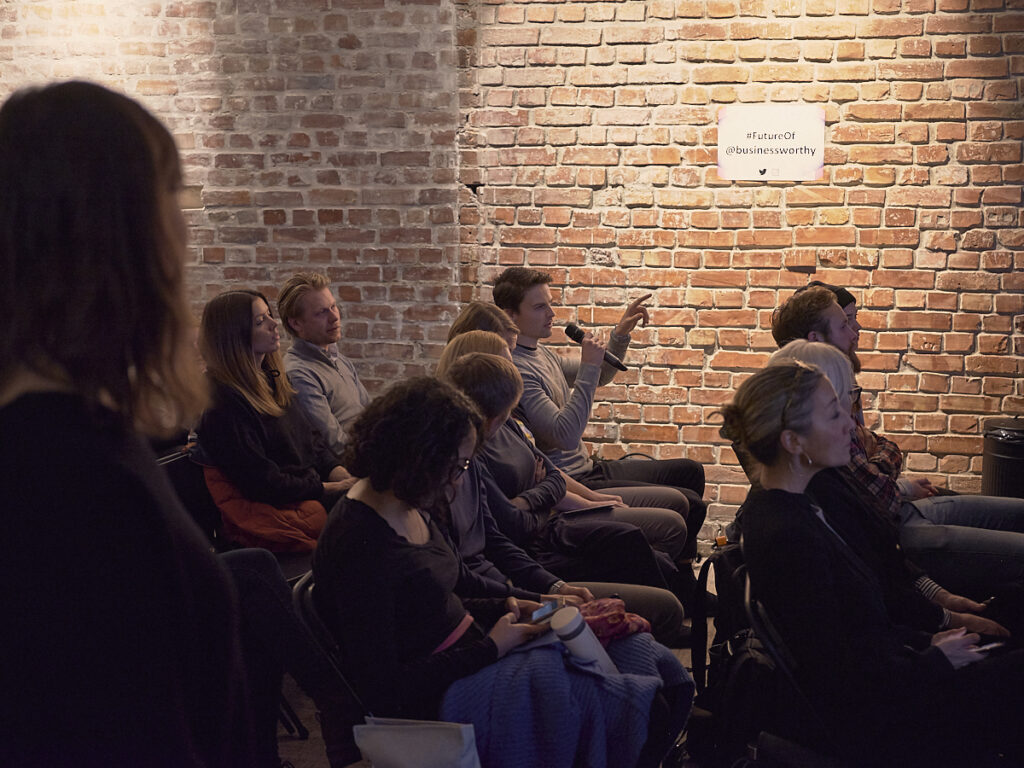
This entry was posted on Tuesday, November 5th, 2019 at 16:50. You can follow any responses to this entry through the RSS 2.0 feed. Both comments and pings are currently closed.
#Future of Talks: The Future of Capitalism
Friday, 04 October 2019 14:26
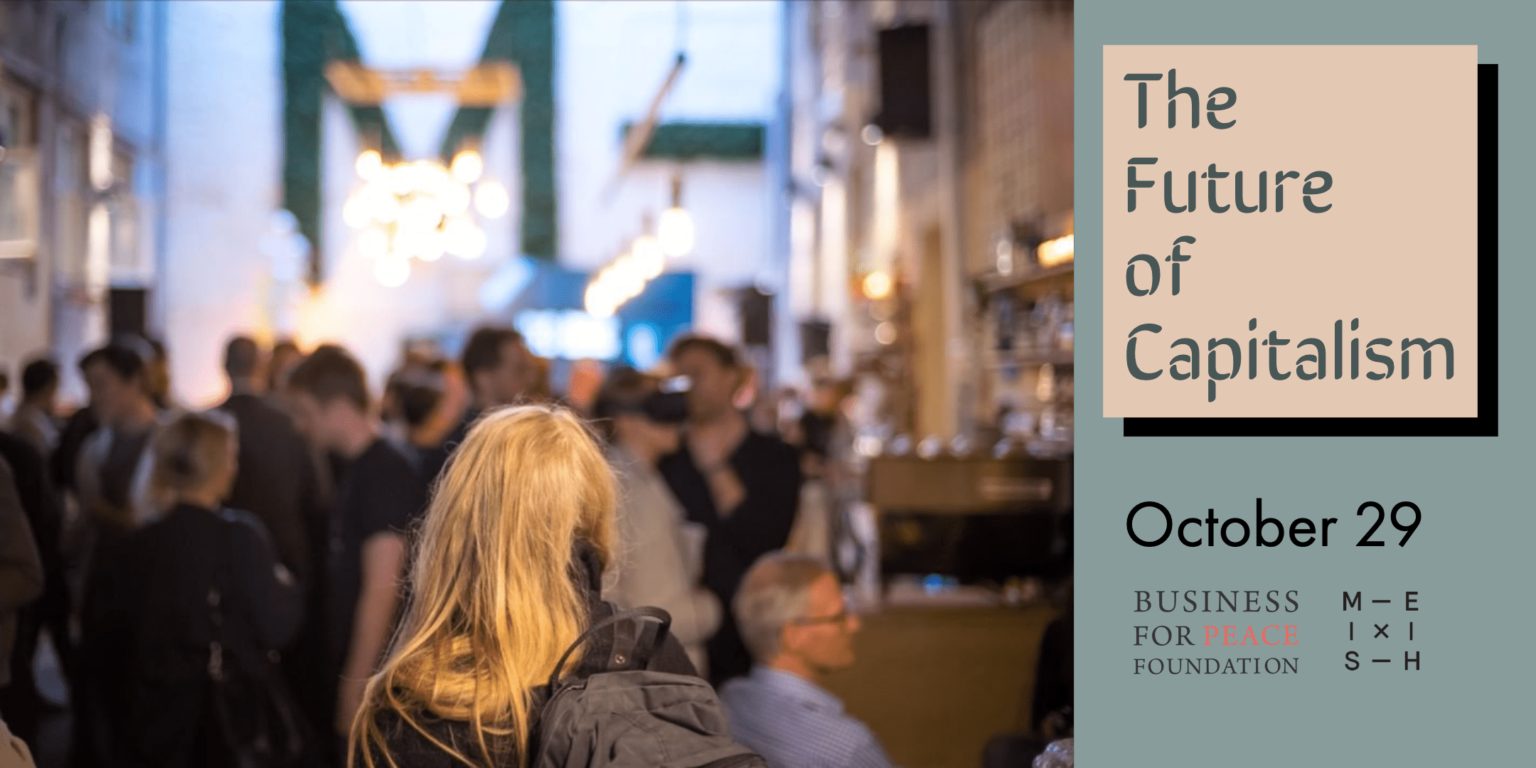
If you look at measures like GDP growth and lifespan, life is better for more people around the world than ever before. Yet inequality is rising, natural resources are running low, and many people are questioning the capitalist systems that led us here.What’s at stake if we continue with the status quo? Should we be seeking to make small adjustments or is a total system overhaul the way forward? What is the future role of businesses in a system that needs to be about more than maximising financial profits?
Join us October 29 to hear from business leaders, policy experts, and researchers. The full guest speaker line-up will be announced soon. It’s the latest #FutureOf talk series presented by Business for Peace and MESH. The event is free to attend, but please RSVP to let us know you’ll be joining us.
Speakers include:
- Idar Kreutzer, Administrative Director of Finans Norge
- Mathilde Fasting, Historian and Economist at Civita
- Kalle Moene, Professor and economist at University of Oslo
- Marianne Stigset, Senior Vice President of Communications, Public Affairs and Sustainability at Aker
Schedule
17:30-18:00 Doors open, come mingle and get settled
18:00-19:00 Talk and discussion
19:00-late Stick around and continue the conversation
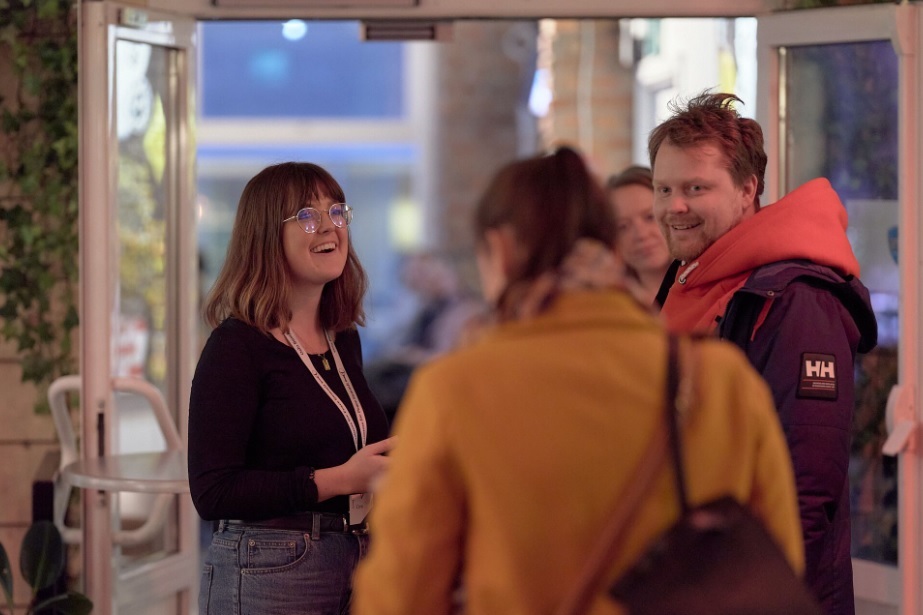
This entry was posted on Friday, October 4th, 2019 at 14:36. You can follow any responses to this entry through the RSS 2.0 feed. Both comments and pings are currently closed.
#Future of Talks: The Future of Your Data
Join us for this talk on the Future of Your Data, and the balance between business needs and individual privacy.
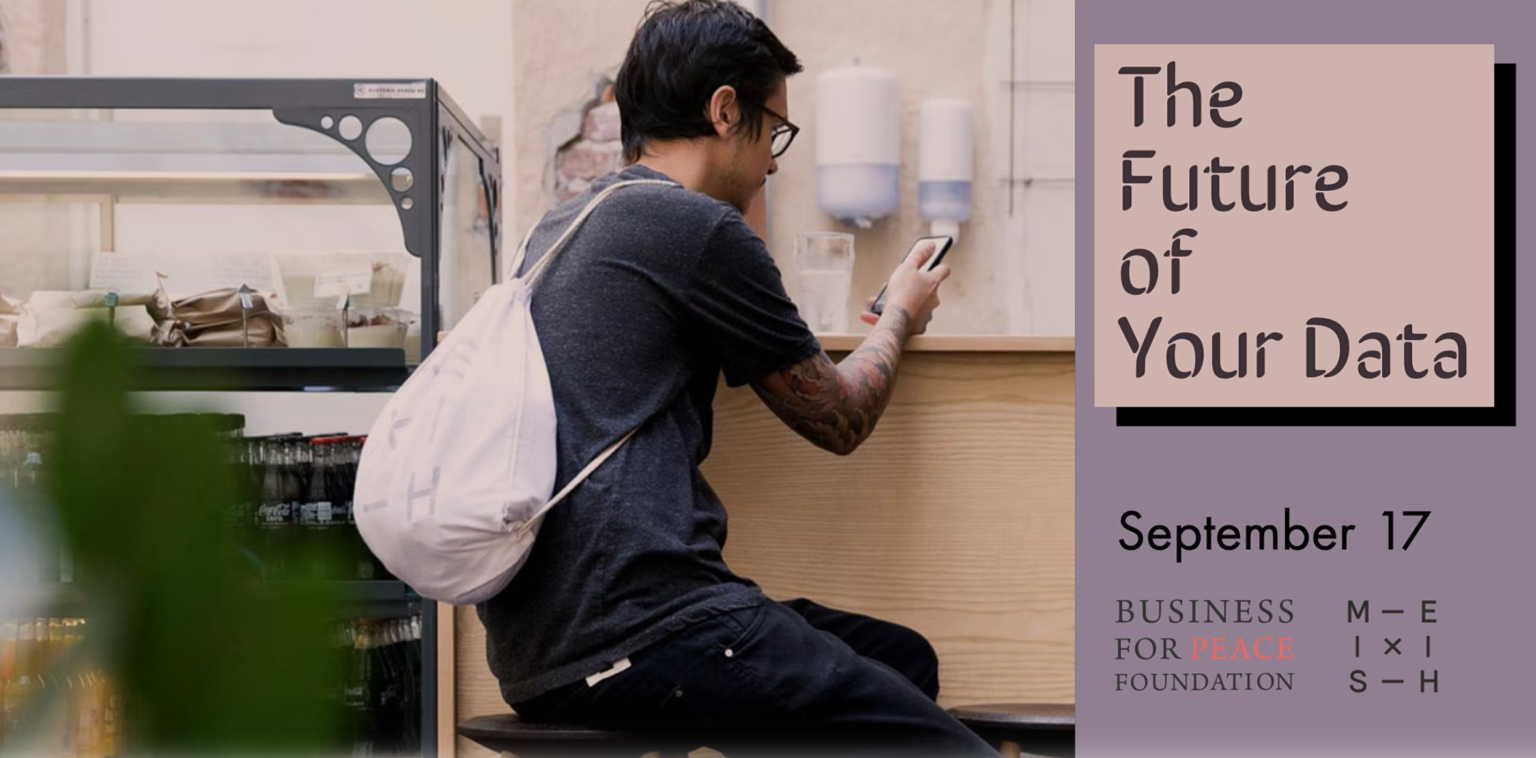
Personal data is becoming a more valuable commodity than oil. We’ve welcomed connected technology into our lives and homes, from the apps we use daily to Alexa, cars, and even refrigerators. It’s easy to see the benefits of such technology, but do we really know what we’ve signed up for? Buried in terms and conditions are permissions for companies to use data in ways we might not realise, and some experts are ringing the alarm.
The fact remains that companies need to collect data to offer their services, and some protective measures like GDPR are in place. What is the balance between business needs and individual privacy? How are companies navigating the ever-changing digital road ahead?
Join us September 17 to hear from business leaders, consumer advocates and policy experts.
Speakers:
- Finn Lützow-Holm Myrstad, Director of Digital Policy, Forbrukerrådet (Norwegian Consumer Council)
- Bruno Oliveira Martins, Senior Researcher on Security, Peace Research Institute Oslo (PRIO)
- Kjersti Løken Stavrum (moderator), CEO, Tinius Trust
- Torgeir Waterhouse, Director of Internet and New Media, IKT Norge
Schedule
17:30-18:00 Doors open, come mingle and get settled
18:00-19:00 Talk and discussion
19:00-late Stick around and continue the conversation
It’s the latest #FutureOf talk series presented by Business for Peace and MESH. The event is free to attend (you’ll just have to pay for anything you purchase from the bar), but please RSVP to let us know you’ll be joining us.
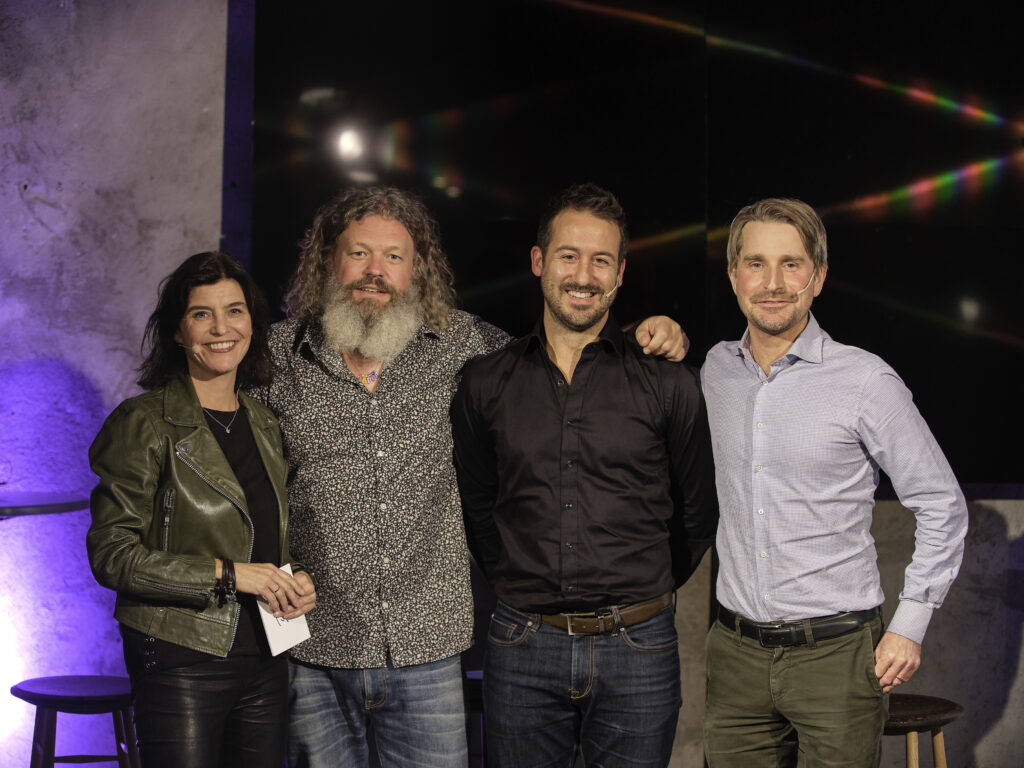
Can’t make it in person? Watch the livestream: https://livestream.com/aktivdebatt/events/8821243
#Future of Talks: The Future of Sustainable Fashion
Let’s Talk About the Future of Sustainable Fashion
Wednesday, 07 August 2019 18:16

Some would say the consumption practices encouraged by global, fast-fashion brands have created a throw-away society, involving high-energy use, labour exploitation and increased carbon emissions – all for the latest trend.
Though many consumers are starting to take notice, is their call for change being heard? Does a circular value chain really solve the core problems of the industry? Will companies be able to develop new ways of manufacturing fast enough? And, how has digitalisation opened up for new opportunities in fashion?
Since many companies are failing to reach out to customers effectively about their efforts to become more sustainable, we have assembled a panel of experts and leaders in the industry to share their views on the future of sustainable fashion. Come hear from each of our guest speakers, then stay for a discussion and Q&A.
Speakers:
- Ina Vikøren, Sustainability Manager, H&M
- Anja Bakken Riise, Leader, Framtiden i våre hender (Future in Our Hands)
- Gisle Mariani Mardal, Head of Innovation, Norwegian Fashion Hub
- Ingun Grimstad Klepp, Researcher, Forbruksforskningsinstituttet SIFO and OsloMet
- Ole Eivind Siggerud, Store Manager and Head Buyer, Livid Jeans
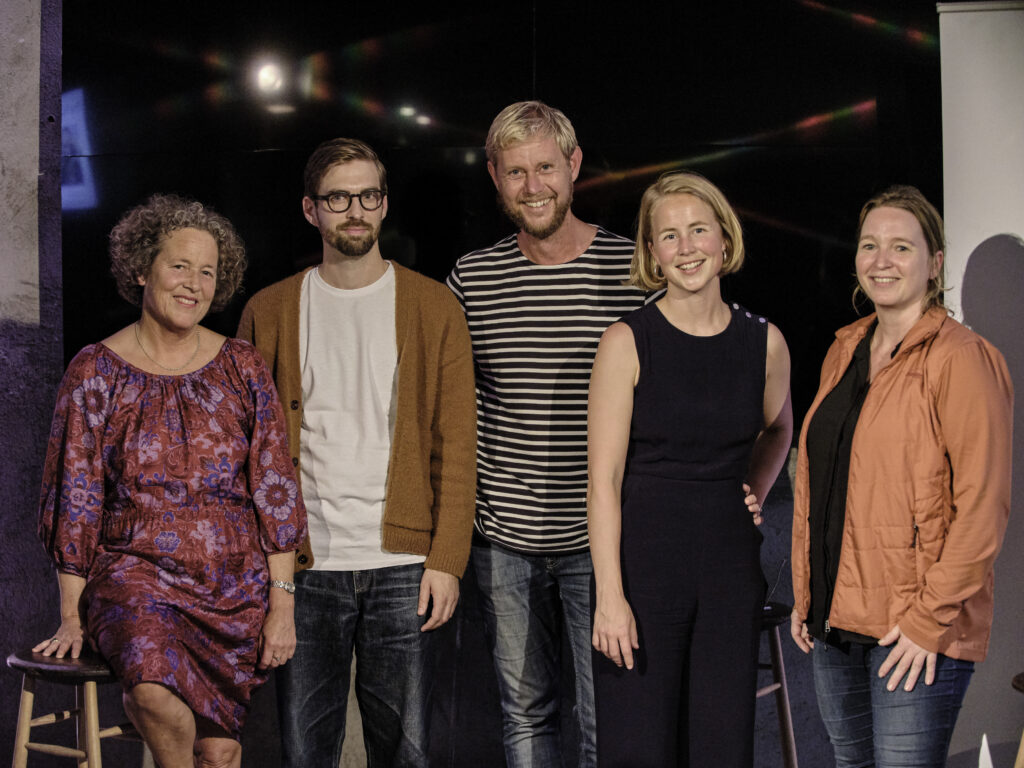
Schedule:
17:30-18:00 Doors open, come mingle and get settled
18:00-19:00 Talk and discussion
19:00-late MESH is throwing an after party! Head downstairs to their Backyard for a bar menu and music from DJ Cecilie Strømheim
The event is free to attend, but please RSVP on Eventbrite to let us know you will be joining us.
It’s the latest #FutureOf talk series presented by Business for Peace and MESH. We’re also pleased to be part of the programming for Oslo’s premier fashion event, OsloRunway. The event is free to attend (you’ll just have to pay for anything you purchase from the bar), but please RSVP to let us know you’ll be joining us.
If you can’t join us, please follow along with the live stream here: https://livestream.com/accounts/3722443/events/8796804
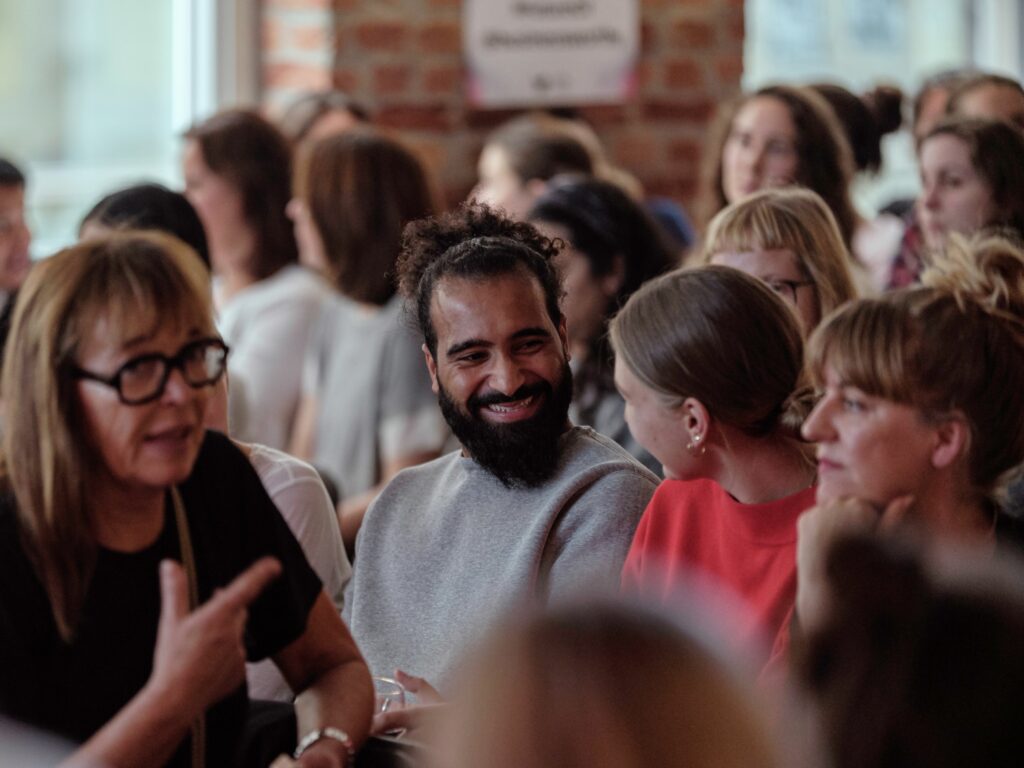
This entry was posted on Wednesday, August 7th, 2019 at 18:16. You can follow any responses to this entry through the RSS 2.0 feed. Both comments and pings are currently closed.
2019 Summit Recap
Tuesday, 06 August 2019 12:04

Were you unable to join us for this year’s Business for Peace Summit? Look back on our conference, Navigating in a World of Imbalance, check out our photo album and watch highlights from the Summit’s landmark events below:
View a playlist of the top panels and talks held at our conference, Navigating in a World of Imbalance below:
We look forward to seeing you at next year’s Summit in Oslo, Norway!
2019 Summit Report now available
Monday, 05 August 2019 16:59
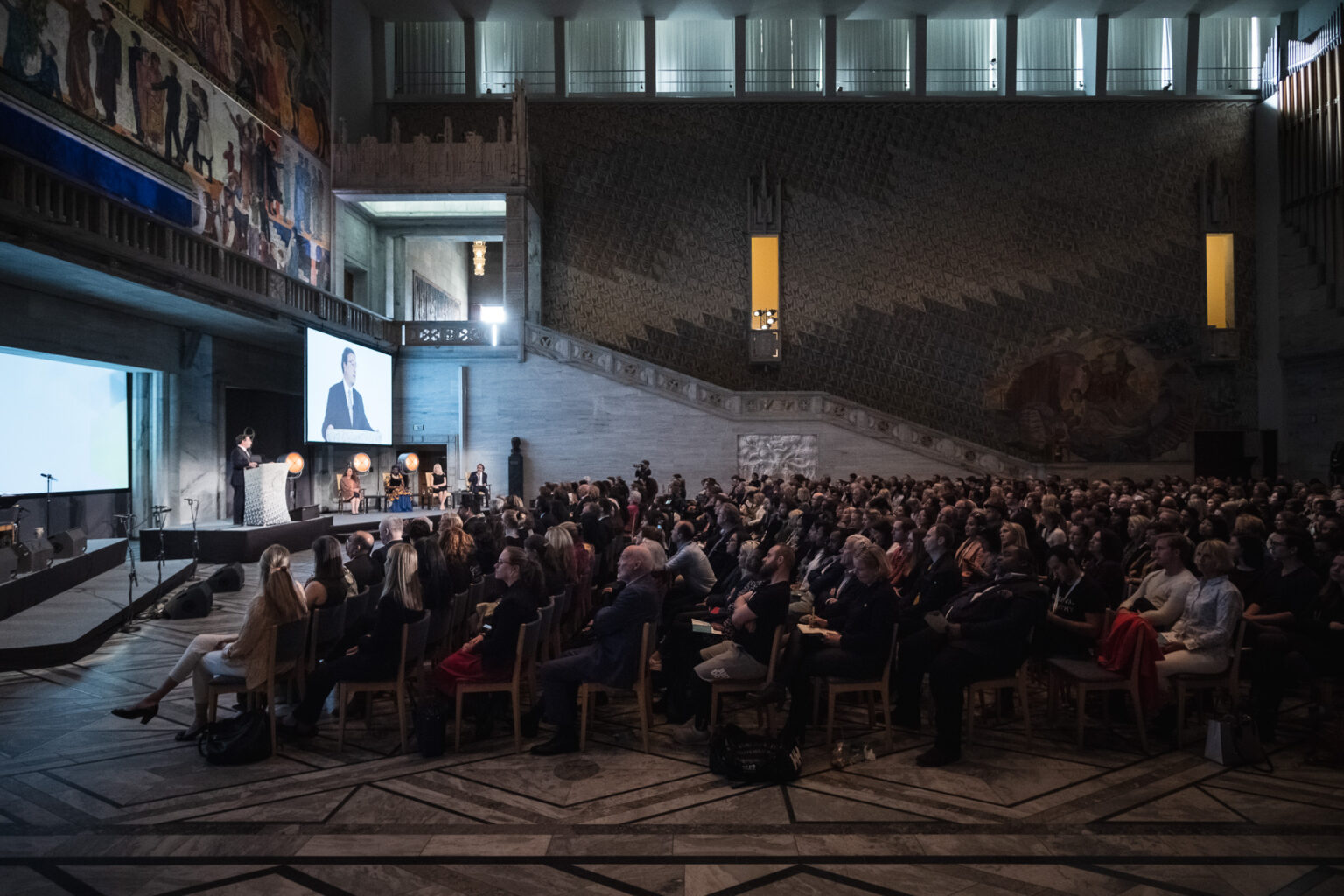
The 2019 Business for Peace Summit brought together business leaders, investors, politicians, academics, and civil society to discuss the role businesses can play in driving an inclusive and prosperous future for all. By exploring different perspectives of imbalances and the role of technology and investment, participants identified tangible actions for business leaders through cross-sector conversations and dialogue.
The Summit report, prepared in collaboration with Deloitte, covers how businesses can shift their priorities to focus on broader value creation- not just for shareholders, but also for society. By optimising societal value instead of only financial returns, businesses can deliver better on their responsibility to society and also profit at the same time.
See key insights from Summit speakers such as Achim Steiner, Administrator, United Nations Development Programme, John Denton, Secretary General, International Chamber of Commerce, and Tim O’Reilly, CEO and Chairman, O’Reilly Media are featured alongside other thought leaders. Case studies from companies across the world add further insight and a special message from Nobel Peace Laureate, Ouided Bouchamaoui, is also included.




